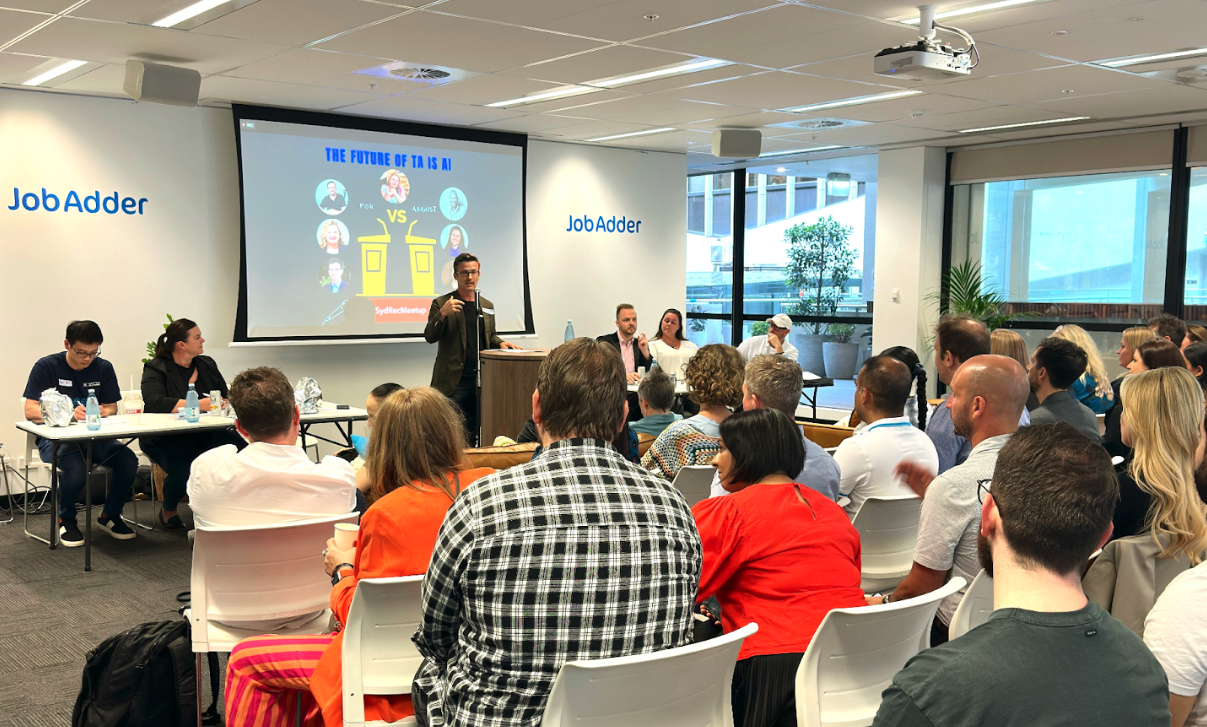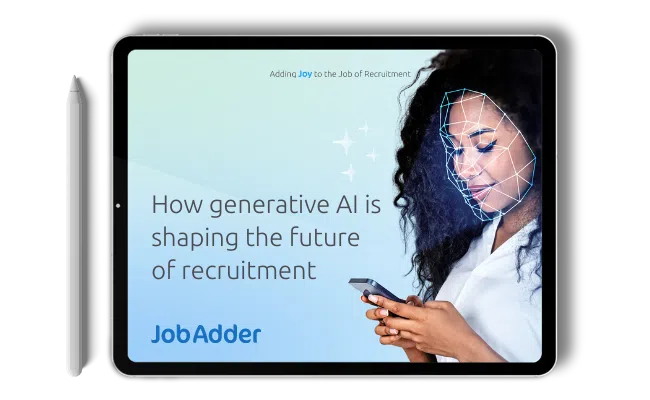Recruitment Blog
Is AI the future of the talent acquisition industry?

The landscape of talent acquisition is undergoing a profound shift with the increasing use of artificial intelligence (AI). Martin Herbst, CEO at JobAdder, points out how technology has always been linked to talent acquisition. From the advent of telephones to the current landscape of job boards and social media, technology has continually shaped and enhanced how people connect and communicate.
“Recruitment, inherently human-centric, plays a pivotal role in guiding individuals towards their next career chapter and aligning organisations with the right talent,” Herbst says.
In the past year, AI has emerged as a catalyst, enhancing the humanisation and personalisation of the talent acquisition role. By automating administrative tasks such as CV reviews and job ad descriptions, AI empowers talent acquisition professionals to transition from transactional duties to becoming influential coaches and advisors, especially in the face of resource constraints and time limitations.
DOWNLOAD THE EBOOK: How generative AI is shaping the future of recruitment
Connecting people to their purpose
AI not only aids in cultivating empathy but also contributes to fostering connections by mitigating biases, Herbst says. An example is how AI is reshaping various industries with the rapid advancements of ChatGPT.
“As we navigate the early days of AI implementation, the emphasis has been on scalability,” Herbst says. Yet, this efficiency-oriented phase is anticipated to evolve into an intelligence-driven stage, focusing on achieving superior business outcomes.
Jessica Gibson-Jones, Head of Talent Acquisition at Toll Group, highlights the shift toward talent advisory and strategic coaching as AI drives talent acquisition roles based on informed decision-making.
“AI enables decision-making to happen and helps us solve repeated problems through data insights. As head of talent acquisition, I want my team to build relationships with the business, build talent strategies by leveraging data, use insights, educate, inform and influence,” Gibson-Jones says.
AI supercharging personalisation and humanisation
AI’s intervention not only streamlines decision-making but also facilitates a shift towards leveraging data insights for strategic talent planning, she says.
“One of the challenges in talent acquisition is the arduous task of screening resumes, a process that can consume up to 30 hours weekly for recruiters. In addition to that, 56% of recruiters spend more than a full working day scheduling interviews for a role per week. That’s not productive,” Gibson-Jones says.
Navigating ethical challenges
However, the integration of AI in recruitment is not without ethical considerations. Aden Vaughan-Williams, Group Talent Partner (Technology) at MedHealth, underscores the importance of maintaining a balance between AI and human expertise, emphasising the ethical dimensions of data privacy and the irreplaceable role of human intuition.
A paper released earlier this year in the Computers and Humans Behaviour journal, acknowledged a few advantages of using AI, namely reduced response time and easier scheduling.
But there can be a lack of transparency when interacting with AI. “About 70% of respondents were concerned about the lack of human touch, low accuracy and reliability in terms of speech and text recognition, inadequate optimisations in interviews, and biases with algorithms,” Vaughan-Williams says.
So while AI excels in data-driven decision-making, it can fall short when assessing soft skills and understanding human nuances, adds Aoife Brady, Account Manager at Orchard Talent Group.
“If you’re in a role that involves change or if you’re in a role that requires you to be adaptable, how will AI be able to assess your adaptability? It cannot understand human nuances yet and doesn’t understand our interactions,” Brady says.
Despite this, Gibson-Jones emphasises that AI is positioned to supercharge personalisation in talent acquisition.
“Far from replacing it, AI empowers professionals to forge genuine connections. AI can help create a candidate-oriented approach, freeing people from mundane tasks.
“By fostering stronger emotional connections during the recruitment process, AI contributes to higher acceptance rates and improved retention,” Gibson-Jones says.
Zichuan Lim, Director at Talent Tech Solutions agrees. “Candidates trust when they can get information quickly and move through the process smoothly. AI can allow this much faster. We need to rethink how things are done,” he says.
Striking a balance for future success
The integration of AI in talent acquisition holds immense promise but demands careful consideration of ethical implications and the preservation of essential human elements. Striking the right balance will be key as we navigate this transformative journey into the future of talent acquisition.
Humans need to learn the parameters in which to harness this technology, how it impacts our roles and how we then move it through as it evolves.
Craig Watson, Co-Founder of TaHub, urges the need for a balanced approach, a thoughtful and responsible integration of generative AI into the recruitment landscape.
“Technology is a tool not a cure for all. Ethical considerations, data privacy, and the importance of human intuition in decision making cannot be forgotten in the pursuit of innovation,” Watson says.
“As we move forward into this exciting future, it will therefore be critical to strike a balance between human expertise and machine intelligence.”
This article is based on Sydney Recruitment Meetup’s Great Debate session titled ‘The Future of Talent is AI’ with the following panellists:
– Martin Herbst, Jessica Gibson-Jones and ZiChuan Lim on the affirmative team
– Aden Vaughan-Williams, Craig Watson and Aoife Brady on the negative team
– Adjudicated by Victoria Casey
If you’d like to join the conversation and network, register now for our next meetup on Thursday, February 29 2024.
Ready to discover the power of generative AI in recruitment?

Related blog posts

To excel in the competition for top talent, proactive workforce planning is essential. Traditional methods struggle to adapt to evolving …
Ready to get started?
Talk to one of our friendly team members


